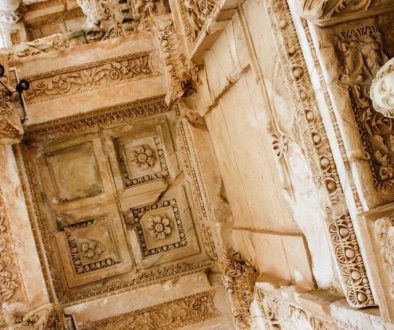Are Today’s Conflicts a Vestige of Caesar’s Legacy?
Russian President Vladimir Putin invades a neighboring nation, on no pretext other than the desire for empire. Former President Donald Trump lays the groundwork for an anti-democratic revolution.
What is the origin of this historic impulse?
Many have argued that it can be traced back to the Roman Empire, and specifically to Julius Caesar. Caesar was a brilliant general and politician, who expanded the reach of Rome through military conquest. He also enacted a series of reforms that made Rome a more efficient and just society.
However, his legacy is fraught with controversy. For some, he was an imperialistic tyrant, whose actions led directly to the decline and fall of Rome. For others, he was a good-hearted reformer, whose vision for Rome was ultimately betrayed by his successors.
Caesar certainly continues to fascinate. However, it is important to remember that this fascination stems in part from the fact that his actions were so influential. The modern world continues to grapple with many of the same problems and tensions that faced Rome — tyranny versus democracy. And today, as a result, both Putin and Trump are compared to Julius Caesar.
Should we view him as a villain or a hero?
The truth is likely somewhere in between. Caesar was a complex figure, whose actions had both positive and negative consequences. What is certain is that his legacy continues to shape the world in which we live.
Pro-Caesar: He inherited a nation torn by violence and division, and he wished to guide his country to peace.
Under this theory, through a series of reforms, he made Rome more just and efficient, laying the groundwork for its later prosperity. For example, he reformed the tax code, making it more equitable. He also established a professional army, which made Rome more secure.
Indeed, we must take into account the positive aspects of his legacy. In pursuing peace through reform, Caesar helped to lay the groundwork for greater justice and equality in the world. And in resisting this impulse towards tyranny, perhaps our modern nations can learn from Rome’s mistakes and triumph over oppression once more.
Anti-Caesar: Caesar was motivated by a desire for power and glory.
His military campaigns were motivated not by a desire to protect Rome, but by a desire to conquer new territory. This led to the decline of Rome, as it became overextended and unable to govern its vast empire. Additionally, Caesar’s reforms undermined the traditional institutions of Rome, paving the way for later emperors to usurp power. For example, his establishment of a professional army made it easier for later rulers to control the populace.
Pro-Caesar: He brought reform and equality to other nations
Some argue that Caesar reformed and improved the nations that he conquered. For example, in Egypt, he demanded that the Jews be treated fairly, and even undertook economic reforms to improve the lives of Egyptians.
In fact, some have argued that Caesar was an early champion of democracy and equality. He paved the way for later revolutionaries like Napoleon and Martin Luther King Jr., who sought to bring these ideals to societies around the world. While that may be an overstatement, it is clear that Caesar’s legacy over conquered populations contains positive aspects.
Anti-Caesar: He Destroyed Rome
Some say that, while his reforms improved Rome in some ways, they also strengthened his own position as emperor, leading to an imperialistic streak that would eventually bring down the empire. Under this argument, he not only destroyed Rome’s democracy, but, furthermore, by extending Roman rule through military conquest, he set a precedent for foreign powers to dominate other countries at will.
In our modern world, many observers would argue that we are seeing echoes of this legacy today. Powerful leaders around the world continue to use military strength and political prowess to expand their power. They create, in the words of Caesar himself, a ‘throne supported by both arms.’
What Would Caesar Have Accomplished Had He Lived?
In spite of his accomplishments, Caesar’s reign was incomplete. In many ways he died just when he was getting started. What would his reign have been like, had it lasted another ten years?
Some have argued that, given more time, Caesar would have eventually become a tyrant.
As he consolidated power, he would have continued to centralize decision-making in his own hands. He would have suppressed dissent and clamped down on opposition. In short, he would have become the very thing that he claimed to be fighting against.
Others believe that, given more time, Caesar would have transformed Rome into a utopia.
He would have continued his reforms, making Rome an even more just and efficient society. Additionally, he would have expanded Roman territory even further, creating a vast empire that spanned the globe. Under this theory, it was only his untimely death that prevented him from achieving this vision.
The Debate Continues
While it is fair to debate the merits of Caesar’s legacy, what is undeniable is that he continues to shape our modern world. Through his actions – both good and bad – he continues to inspire leaders around the globe, as they struggle to find balance between justice and empire.
^^^
Article by Audere Magazine. Image by Pexels



